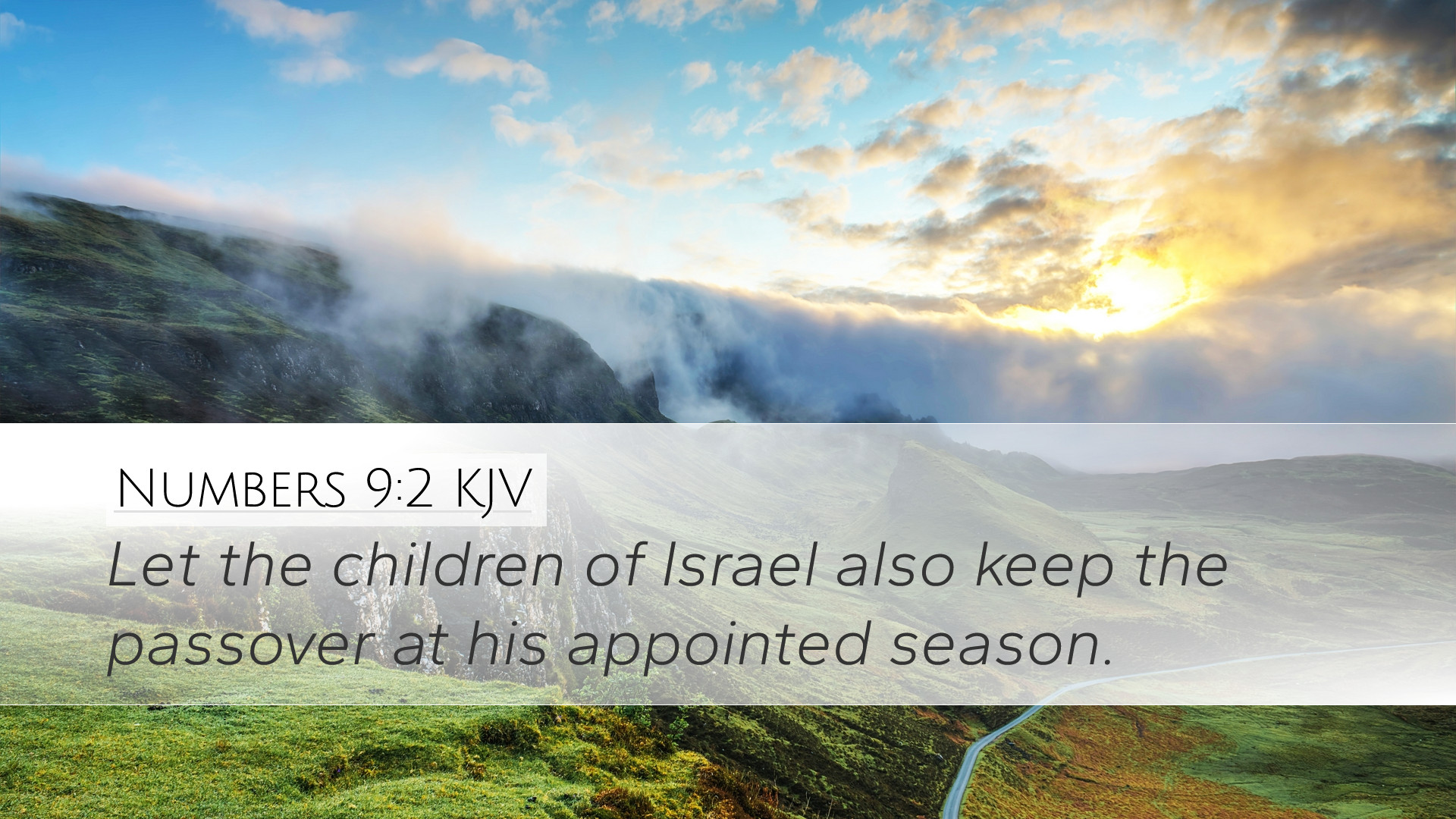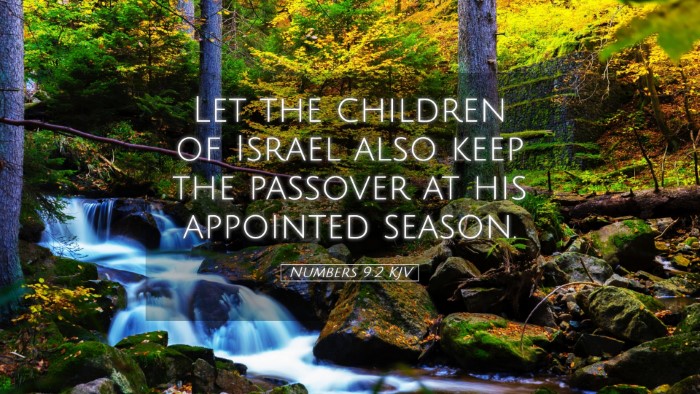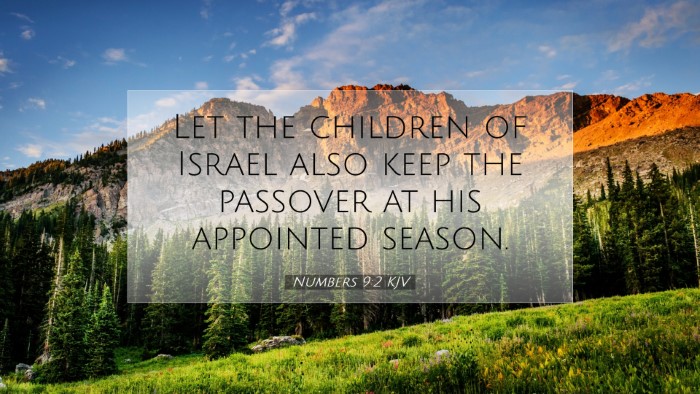Commentary on Numbers 9:2
Verse: "Let the children of Israel also keep the Passover at his appointed season."
Introduction
The verse from Numbers 9:2 is a significant mandate from God directing the Israelites to observe the Passover. This was a solemn and pivotal event that commemorated their deliverance from Egyptian bondage. Understanding the implications of this command sheds light on God's relationship with His people and the principles of obedience, remembrance, and worship.
Context of the Passage
In the broader narrative, the book of Numbers deals with the organization of the Israelites in the wilderness. Following the Exodus, the community was in a formative stage, and the adherence to rituals such as the Passover was essential for establishing their identity as God's chosen nation. This command in Numbers 9 occurs shortly after the recounting of the original Passover in Exodus 12, when God liberated His people from slavery. Thus, this directive serves not only as a reminder of their past deliverance but also as an ongoing obligation to maintain their covenant with God.
Theological Insights
The command to keep the Passover encompassed several theological themes:
- Divine Appointment: The phrase "at his appointed season" underscores God's sovereignty in establishing times for worship. The observance of Passover was not left to individual discretion but was dictated by divine ordination.
- Remembrance of Deliverance: The Passover symbolizes God's redemptive act and serves as a communal remembrance of how God delivered His people. The act of remembering is crucial in covenant life, reinforcing the significance of their relationship with God.
- Community and Identity: Observing the Passover was a communal act that fostered unity among the Israelites. It established a narrative that connected them to their heritage and identity as God’s chosen people.
Commentary Summaries
Matthew Henry's Commentary
Matthew Henry emphasizes the importance of obedience to God's commands. He suggests that the Israelites are to be diligent in observing the Passover at its appointed time to ensure that they remember their redemption from Egypt. For Henry, the observance of the Passover becomes a means of grace, a way for the people to express gratitude for God's protection and provision.
Albert Barnes' Notes
Albert Barnes highlights that this command underscores the significance of keeping religious festivals as established by God. He explains that the timing of the Passover correlates with God's plan and the seasonal calendar. Barnes notes that the observance of the Passover was a way to reinforce the continuity of faith and obedience among the generations of Israel. Furthermore, he points out how this practice serves as a symbol of God's ongoing presence and faithfulness among His people.
Adam Clarke's Commentary
Adam Clarke provides insights into the details surrounding the observance of Passover and its implications for consecration. Clarke suggests that this command was particularly significant as it demonstrated the organized worship pattern that God desired from His people. He notes the importance of precision in following divine instructions, reflecting on how such dedication is a reflection of their covenant relationship. Clarke also draws attention to the implications of the Passover sacrifice and the new covenant established in Christ, shedding light on the continued relevance of this observance.
Practical Applications for Today
For modern readers—pastors, students, theologians, and Bible scholars—Numbers 9:2 offers several practical applications:
- Importance of Rituals: Just as the Israelites were instructed to observe the Passover, believers today are encouraged to participate in rituals that enhance their faith, such as communion and baptism, which remind them of Christ's sacrifice and the grace extended through Him.
- Covenantal Commitment: This passage challenges believers to reflect on their commitment to God. Like the Israelites, they, too, are called to remember and respond to God's acts of deliverance in their lives.
- Community Worship: The Passover was a communal observance. The modern church must cultivate a sense of community through shared worship experiences that foster unity and collective remembrance of God's work.
Conclusion
Numbers 9:2 serves as a profound reminder of the significance of obeying God's commands. Through the ritual of Passover, the Israelites were called to remember their identity and story as they journeyed to the Promised Land. The engagement with this scripture, enriched by historical and theological insights from various commentators, invites contemporary believers to reflect on their own covenant relationship with God and the practices that shape their faith community.


